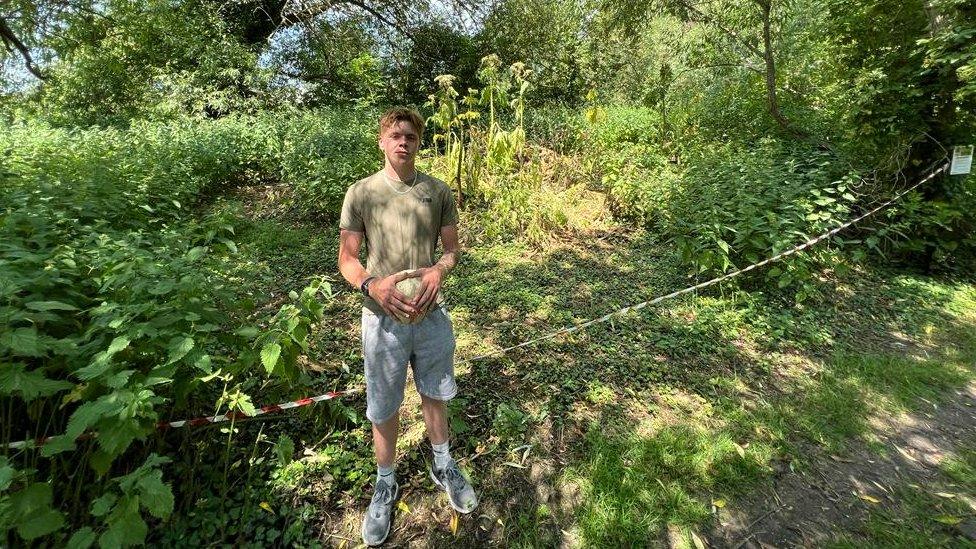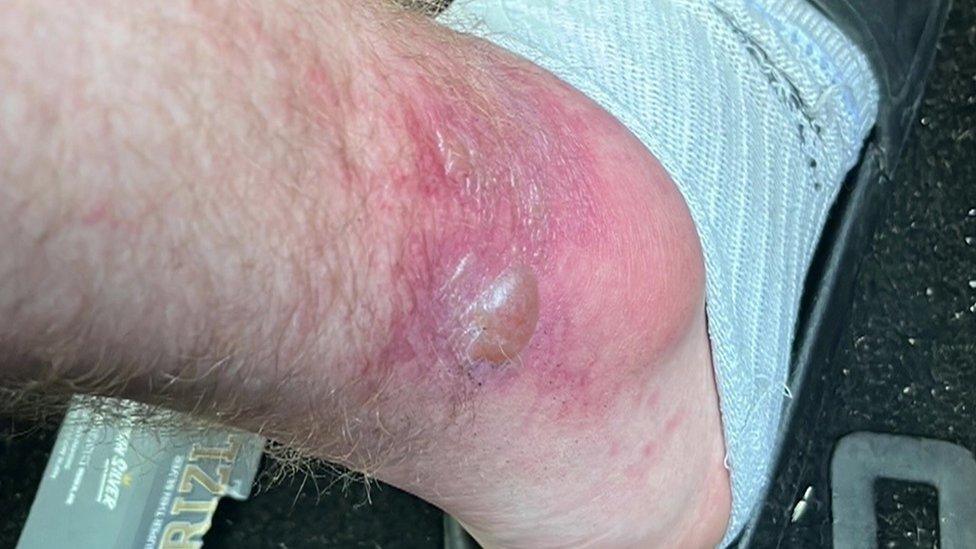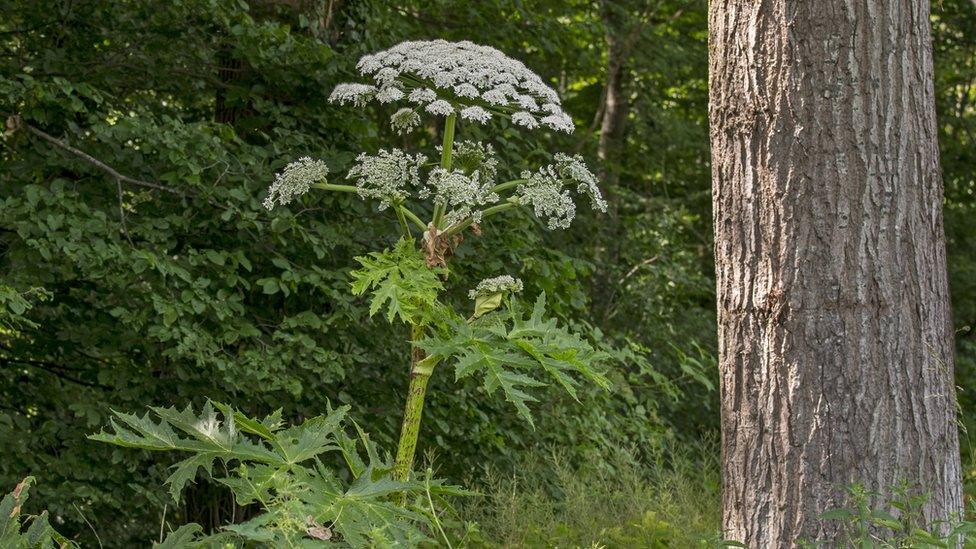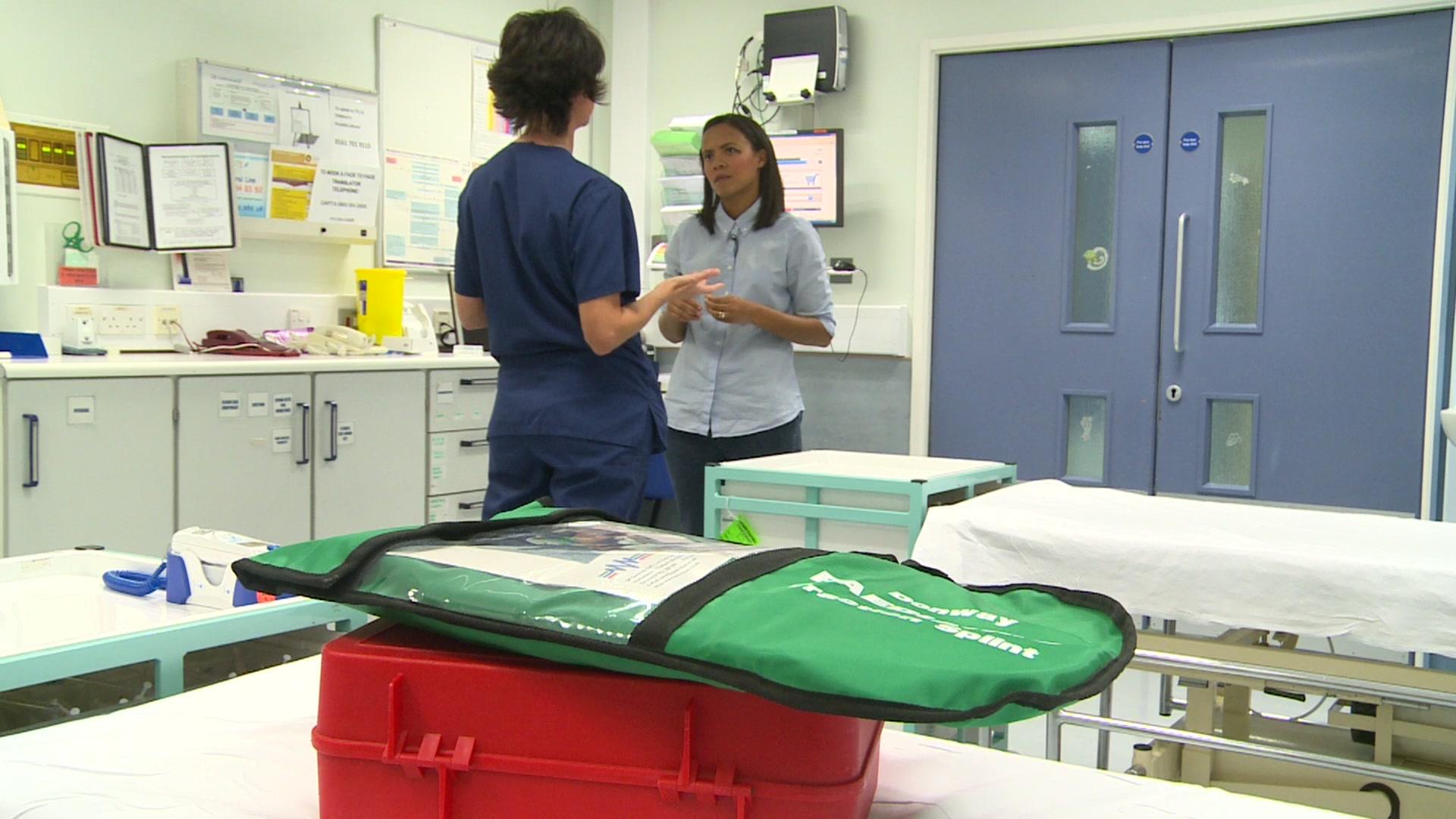Giant hogweed warning after London man left with scarring
- Published

Daniel was stung after retrieving a football in Boston Manor Park
A man has been left with potentially lifelong scars after touching what is described as Britain's most dangerous plant.
Daniel Logan stung his ankle on a giant hogweed in Boston Manor Park, west London, while retrieving a football.
Toxic sap from the weed, which grows near canals and rivers, can increase the sensitivity of the skin to sunlight, often leading to burns.
"It's been terrible to be honest," Mr Logan said.
"Now I know, it will never happen again," he added. "But I'm lucky, I'm 21 years old and it's only my ankle."

Mr Logan's ankle needs to be covered for up to six months
"If a little kid falls in there, gets it on their face or something, that's going to cause them life-changing injuries so I'm lucky but someone else may not be.
"If I had seen some signs I wouldn't have gone down into the bush. I've only gone in to get the ball for my brother but if I was made aware what it was and what it could do to you, I definitely wouldn't have gone in there."
Heracleum mantegazzianum, known as giant hogweed, can grow up to 3m (10ft) tall and is generally biennial, according to the Royal Horticultural Society, external.

Giant hogweed should be avoided, experts warn
Dr Mark Spencer, botanist and invasive species expert, said: "It's the only plant I would actually say to beware of in our country.
"We have many, many poisonous plants and fungi, most of which are totally safe to be around - apart from giant hogweed. Do not touch it."
If you do come into contact with it, he stresses the importance of covering your skin up, even if it's warm and sunny.
He added: "Get yourself home and have a light shower or bath, wash your skin off to get the chemicals off your skin and just keep a very careful eye.
"If you start to feel that your skin's tingling or hint of burning, contact a medical person immediately, probably go to A&E or speak to your GP."
Additional reporting by Barry Caffrey

Follow BBC London on Facebook, external, Twitter , externaland Instagram, external. Send your story ideas to hellobbclondon@bbc.co.uk, external
Related topics
- Published12 August 2015
